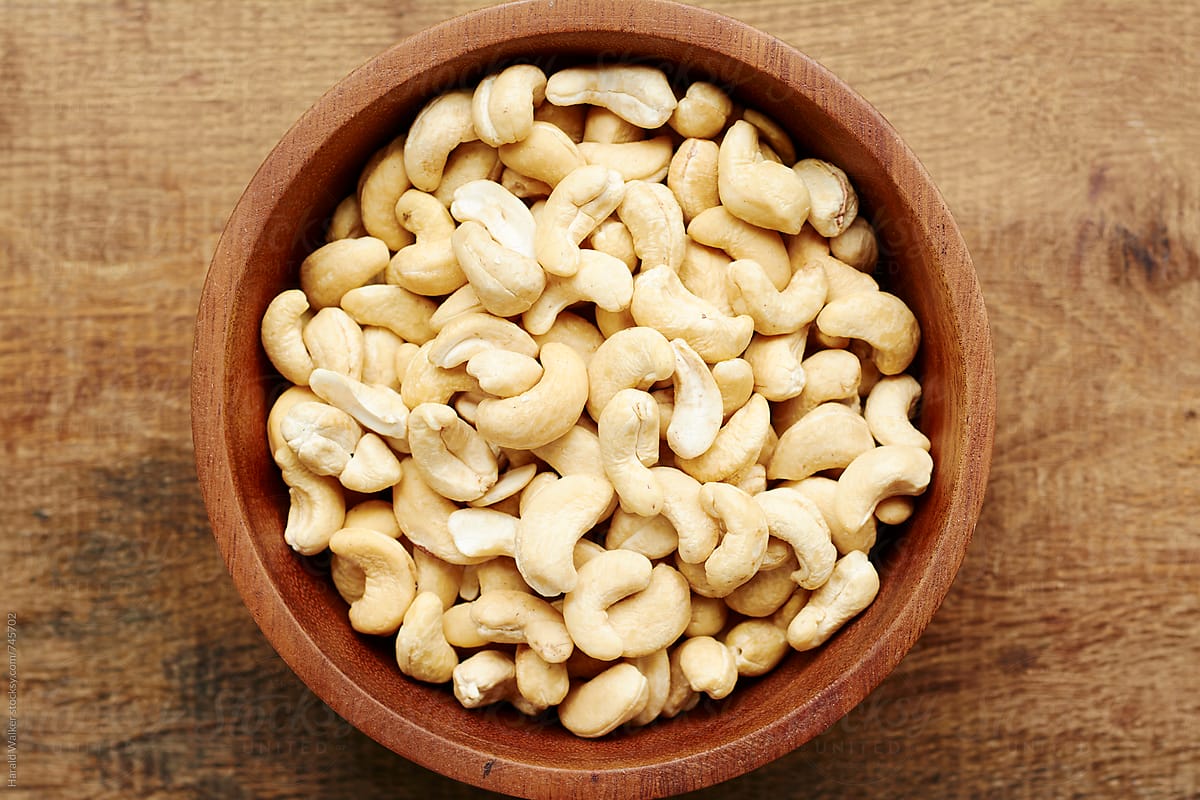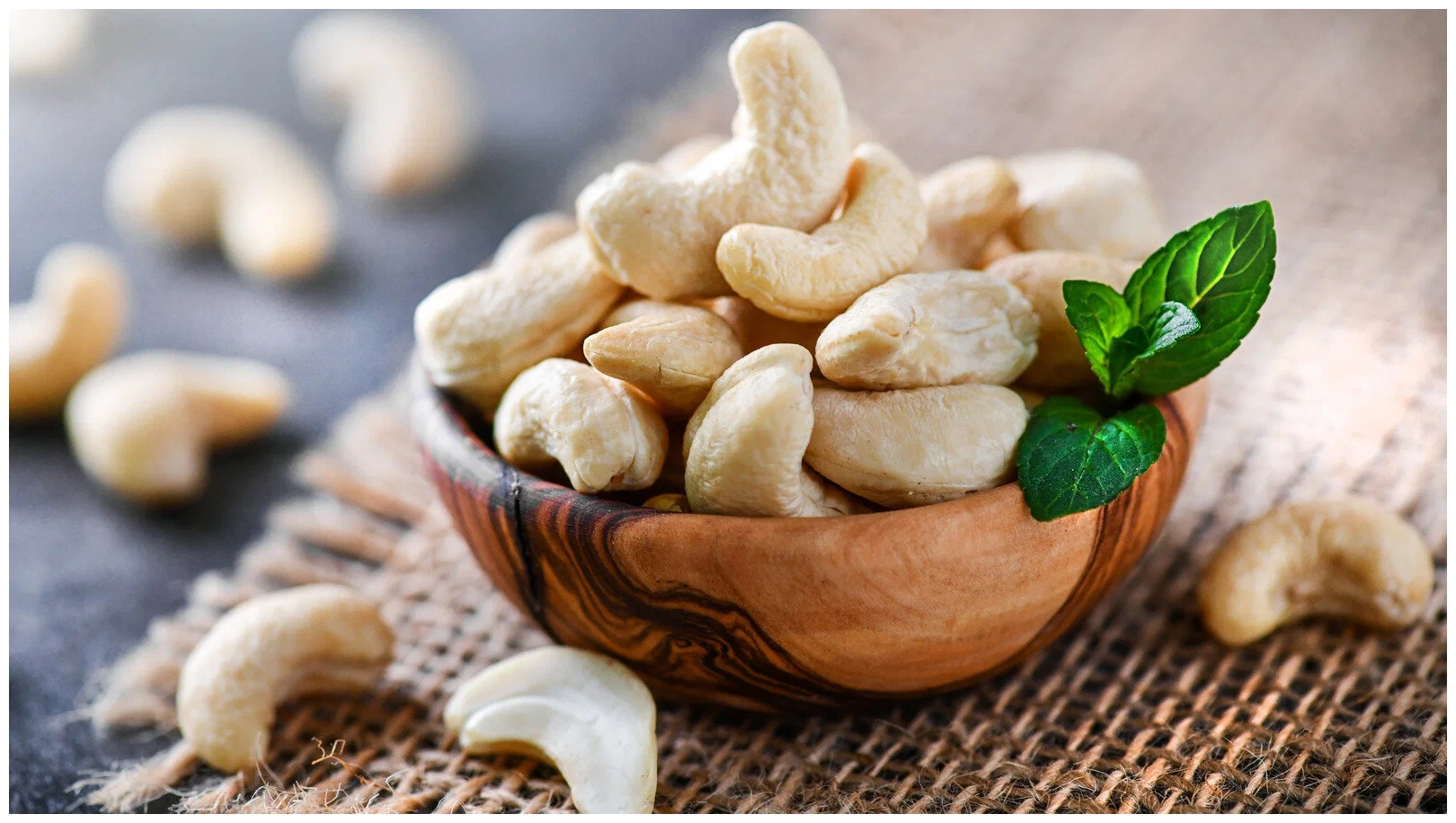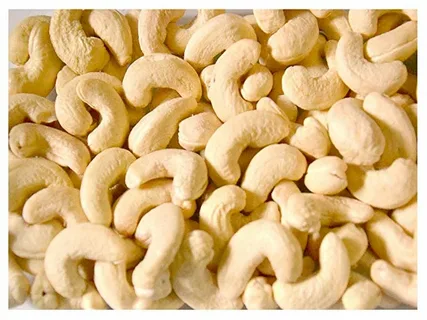Cashew nuts, derived from the tropical cashew tree (*Anacardium occidentale*), are celebrated for their buttery taste and smooth texture. Though commonly referred to as nuts, they are technically seeds that grow outside the cashew apple. These seeds are encased in a hard shell containing a toxic resin, which is removed during processing to make them safe for consumption.
**Nutritional Profile:**
* **Healthy Fats:** Rich in monounsaturated and polyunsaturated fats that support heart health.
* **Protein:** Provides a plant-based protein source, beneficial for muscle maintenance.
* **Minerals:** High in copper, magnesium, phosphorus, and manganese, essential for various bodily functions.
* **Vitamins:** Contains vitamin K and B vitamins like B6 and thiamine.
**Health Benefits:**
* **Heart Health:** May help reduce blood pressure and support cardiovascular well-being.
* **Blood Sugar Control:** Can aid in preventing blood sugar spikes, beneficial for individuals with diabetes.
* **Skin and Hair:** Nutrients like copper and antioxidants contribute to healthy skin and hair.
* **Bone Health:** Magnesium and phosphorus support strong bones.
**Culinary Uses:**
Cashews are versatile in the kitchen. They can be enjoyed raw or roasted as a snack, blended into creamy sauces, or used in baking. In Indian cuisine, they’re often added to curries and sweets. Cashew butter and cashew milk are popular dairy alternatives in vegan diets.
**Storage Tips:**
To maintain freshness, store cashew nuts in an airtight container in a cool, dry place. Refrigeration can extend their shelf life, and freezing is suitable for long-term storage.
Incorporating cashew nuts into your diet offers both culinary delight and nutritional benefits, making them a valuable addition to a balanced lifestyle.





Reviews
There are no reviews yet.